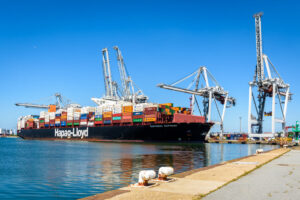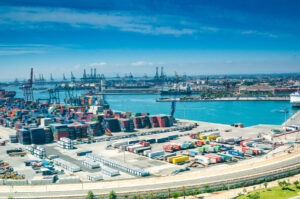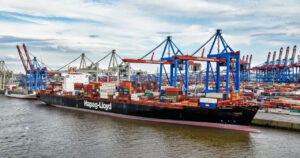The Port of Rotterdam has announced that it is furthering its cooperation with DeltaPort Niederrheinhäfen (Lower Rhine Ports) as part of a plan to pursue digitalization and reduce carbon emissions.
As well as making transportation and logistics operations more sustainable, the aim of the partnership is to increase access to the North Rhine Westphalian hinterland.
A total of five ports linked trimodally are now available in this heavily congested region, including the Wesel city port, the Rhein-Lippe Wesel port, the Voerde-Emmelsum port and the ports of Emmerich and Rheinberg-Orsoy.
View the Port of Rotterdam's range of smart solutions on PTI's Approved Industry Suppliers portal
With more transhipment options open, a shift from truck transports to more environmentally friendly waterways and rail networks can now take place.
According to Rotterdam, cooperation between the port groups will focus on three strategic areas.
Credit: Eric Bakker
Both organizations are witnessing “strong growth” in terms of cold chain logistics and have agreed to explore how refrigerated goods can be transported more reliably and efficiently into the future.
Another focus of the cooperation is digitalization, which will be supported by the exchange of digital information between Rotterdam and Lower Rhine Ports.
This move is expected to provide greater transparency and facilitate the expansion of intermodal transport, thereby improving accessibility for DeltaPort and Rotterdam.
Vincent Campfens, Port of Rotterdam, discusses digital ports in a recent Port Technology technical paper
In addition to this, Rotterdam and Lower Rhine Ports will also work together on the “ecologically sustainable” design of complex logistics solutions, with the former drawing on its experience as one of many organizations aiming to become emissions-free in the future.
Following the signing of the agreement, which took place on June 5, CEO of Delta Port Andreas Stolte said: “Not only do we see in Rotterdam the largest European seaport, but much more than that one of the leading drivers of innovation in port logistics.
“We are also convinced that through this cooperation we are jointly making a major contribution to the sustainable development of logistical chains and so to easing the load on our environment.”











